Warm Colors Yellow For App Design
Processes and Tools UI/UX
Color Matters. 6 Tips on Choosing UI Colors
The article reveals six tips on choosing colors for mobile and web interfaces. It shows techniques helping UI designers to boost user interest to a product.
by Alina Arhipova
User experience design involves many processes that need to be done thoughtfully so that an interface would meet the needs of the target audience. Each step requires deep attention to details, even if it doesn't seem too complicated.
One of the time-consuming still vital stages in UI creation is color choice. Designers sometimes can spend hours picking up the right color palette. In this article, we'll describe six useful tips helping designers choose powerful colors for UI and make this process easier and more productive.
Tip 1. Learn 60–30–10 rule
This rule, or technique, came from the interior design, so it is often applied for house decorating. The idea is simple. To bring the balance into the composition, the colors should be combined in the proportion of 60%–30%–10%. The biggest part should go to the dominant hue, the third of the composition takes secondary color and 10% percent goes to the color which helps to make the accents.
Such a proportion is thought to be pleasant for human eyes since it allows perceiving all the visual elements gradually. Knowing the appropriate proportion designers can successfully combine the colors without risks of turning UI into a colorful mess.
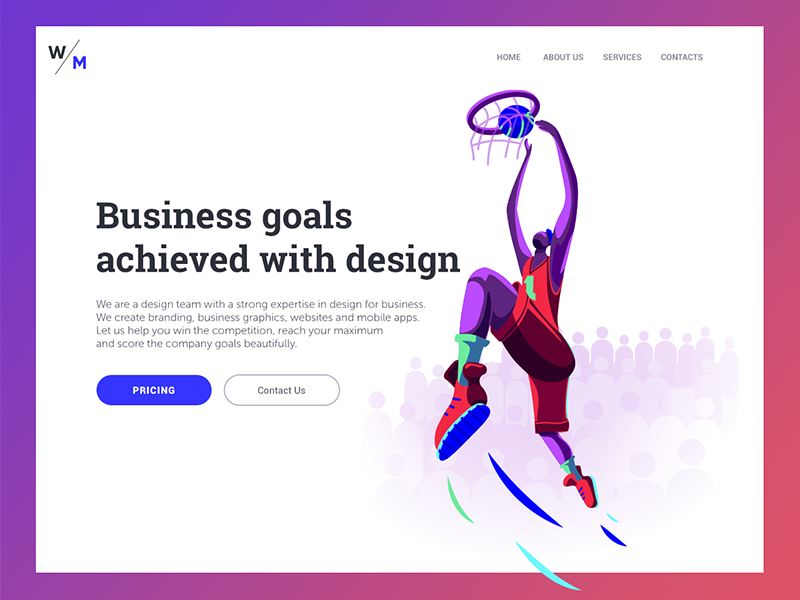
Digital Agency Landing Page
Tip 2. Contrast is a friend
Color contrast is a key part of any visual composition. It brings the individuality for each UI element and makes all of them noticeable. User interfaces containing only shades from the same color family have fewer chances to draw users' attention. Moreover, copy content in this UI will look illegible which makes the interactions with a product almost impossible.
Designers control the level of contrast depending on the goals it is supposed to accomplish. For example, if you need users to pay special attention to the specific UI elements, it's a good idea to apply two highly contrasting colors such as blue and red. High contrast is often used for CTA buttons design.
However, speaking of UI as a whole composition, a high level of color contrast may not always work well. If copy content and the background colors contrast each other too much, it will be difficult to read or scan the text. That's why designers are recommended to create a mild level of contrast and apply high contrasting colors only for highlighting elements. User-testing on various devices can help designers to make sure of the effectiveness of their solutions.
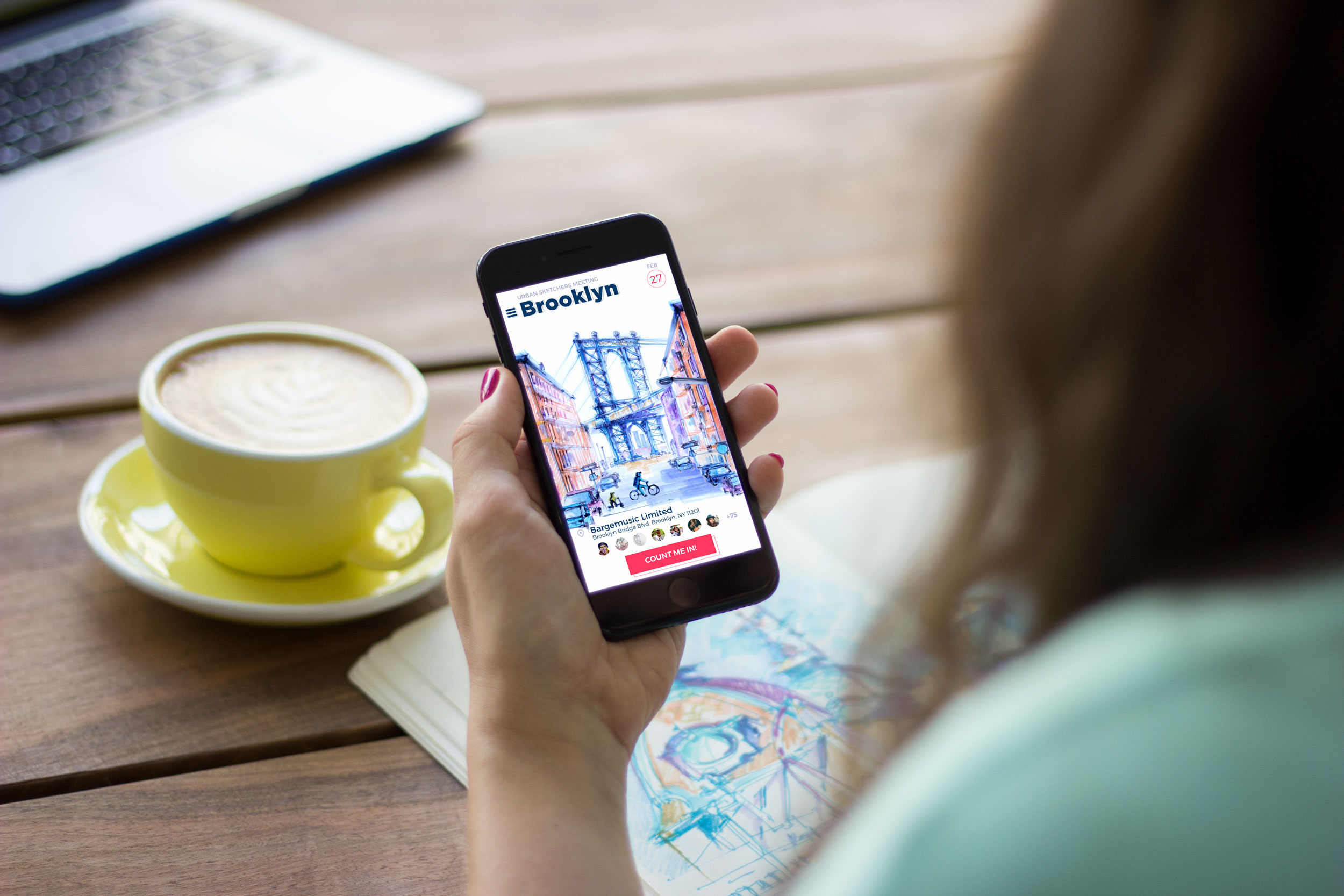
Urban Sketcher App
Tip 3. Consider the psychology of colors
As we've mentioned in our previous articles, psychology is one of the basic studies helping in a design workflow. There is a branch of psychology showing the influence of colors on human mood and behavior called color psychology. It states that our mind reacts to colors while we usually do not notice it. When human eyes perceive color, our brain gives signals to the endocrine system releasing hormones responsible for the mood and emotions.
Each color has its own influence on our mind and the knowledge of the possible reactions can help designers to transfer the right message and call users to make the expected action. Here is a shortlist of color meanings.
Red. It symbolizes both good and bad feelings including love, confidence, passion, and anger.
Orange. An energetic and warm color bringing the feelings of excitement.
Yellow. This is the color of happiness, sunlight, joy, and warmth.
Green. The color of nature which brings calming and renewing feelings.
Blue. It often represents some corporate images. May be associated with distance and sadness.
Purple. Long associated with royalty and wealth. It's also a color of mystery and magic.
Black. It associates with a tragedy and death and signifies a mystery. At the same time, it can be traditional and modern.
White. The color means purity and innocence, as well as wholeness and clarity.
In addition, designers need to remember that visual perception is quite individual for everyone. Such factors as age and gender have a great impact on color preferences, so it's vital to know the target audience's peculiarities. You can find a detailed description of color meanings and preferences in our article about color psychology.
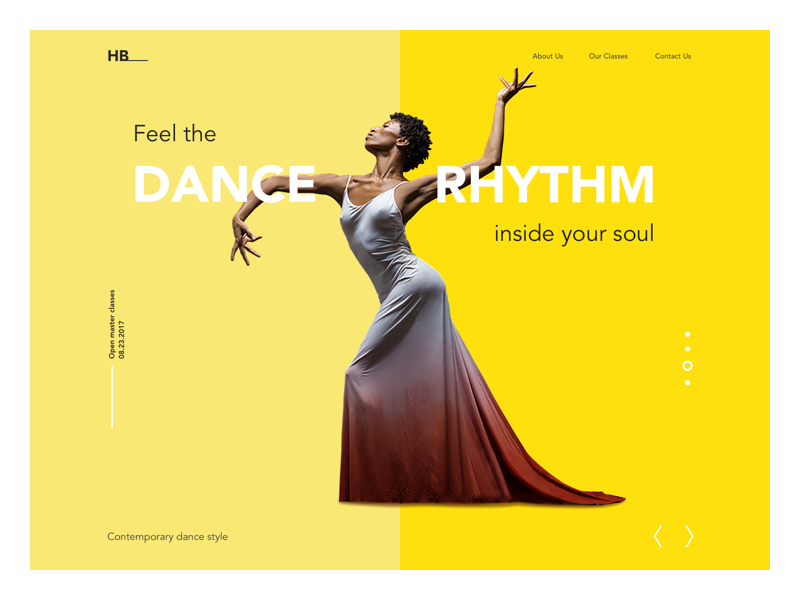
Dance Academy Website
Tip 4. Don't forget cultural differences
Each culture has its own traditions and beliefs, so before you choose the colors, you need to make sure that they will be interpreted the way you mean. The thing is that sometimes one color may have absolutely opposite meanings in different countries. For example, in European countries white color signifies purity and it is often used at weddings while in many Asian countries this color means death and sorrow. Incorrect usage may lead to misunderstandings which could be fatal for a product. By acknowledging the specialties of culture's color perception designers decrease risks of being misconceived.
Tip 5. Strive to color harmony
Harmony is what UI design strives to. To make users feel pleased and comfortable, designers try to bring the balance into user interface design. The color harmony is about the arrangement of the colors in design in the most attractive and effective way for users' perception. Harmonic colors contribute to a nice first impression from the website or application.
After years of searching, designers distinguished the basic color schemes that work effectively. Let's see what they are.
Monochromatic. Color harmony is based on one color with various tones and shades of it.
Analogous. The scheme applies colors located right next to each other on the color wheel.
Complementary. It is the mix of colors placed in front of each other on the color wheel and it aims to produce high contrast.
Split-Complementary. This scheme works similarly to the previous one but it employs more colors. For instance, if you choose the blue color you need to take two others which are adjacent to its opposite color meaning yellow and red.
Triadic. It is based on three separate colors that are equidistant on the color wheel. Professionals recommend to use one color as a dominant, the others as accents.
Tetradic/Double-Complementary. The tetradic color scheme employs four colors from the wheel which are complementary pairs. If you connect the points on the chosen colors they form the rectangle.
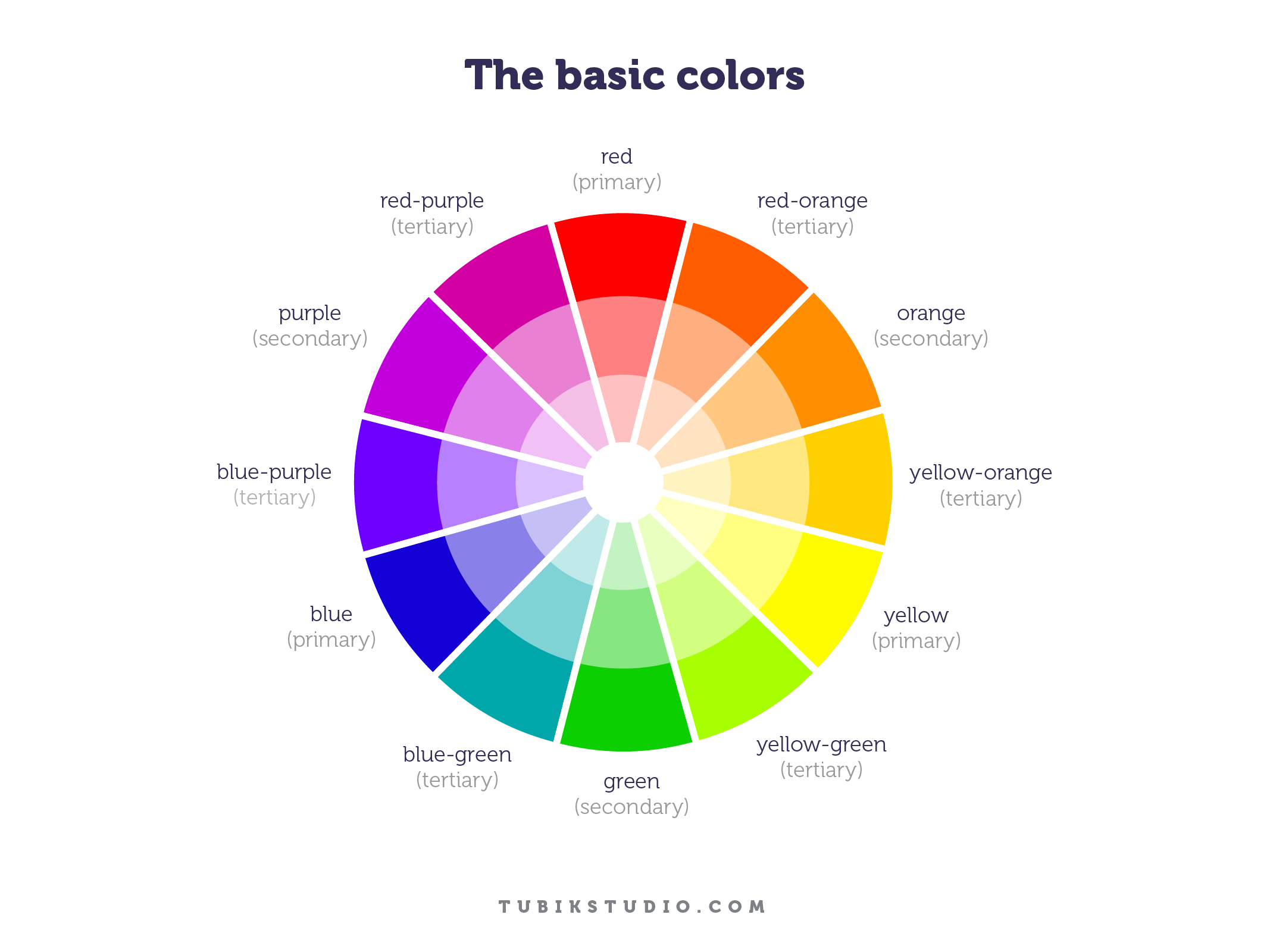
Detailed information and examples of color harmony can be found in our article Color Theory: Brief Guide for Designers.
Tip 6. Steal ideas from nature
Mother nature is the best artist and designer in the world. Color combinations that we can see in the natural environment are always close to perfect. People enjoy watching sunsets and dawns, autumn forests and winter mountains since they are full of natural color combinations.
So, why don't you try to borrow a few ideas? Go for a walk or search for beautiful nature photos and you will definitely find the inspiration.
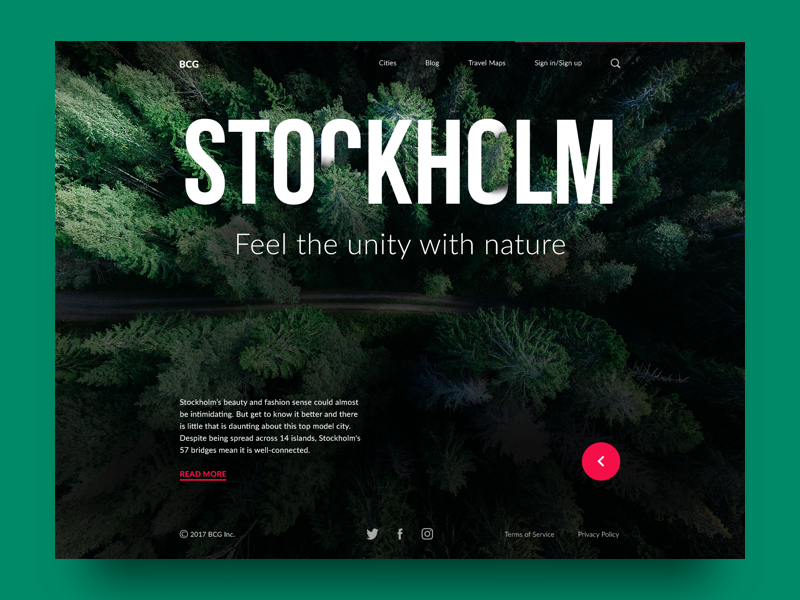
Big City Guide
The success of a digital product depends largely upon the colors chosen for its UI. The right colors help users feel comfortable with a product. Designers can put people in the frame of mind that compels them to take action just by applying the appropriate color palette. Make your choices wisely.
Recommended reading
Color Theory: Brief Guide For Designers
Light or Dark UI: Tips to Choose a Proper Color Scheme
Color in Design: Influence on Users' Actions
Color in UI Design. Look on the Bright Side
Dark Side of UI. Benefits of Dark Background
3C of Interface Design: Color, Contrast, Content
Welcome to see the designs by Tubik Studio on Dribbble and Behance
Warm Colors Yellow For App Design
Source: https://blog.tubikstudio.com/color-matters-6-tips-on-choosing-ui-colors/
Posted by: geistfairie.blogspot.com

0 Response to "Warm Colors Yellow For App Design"
Post a Comment